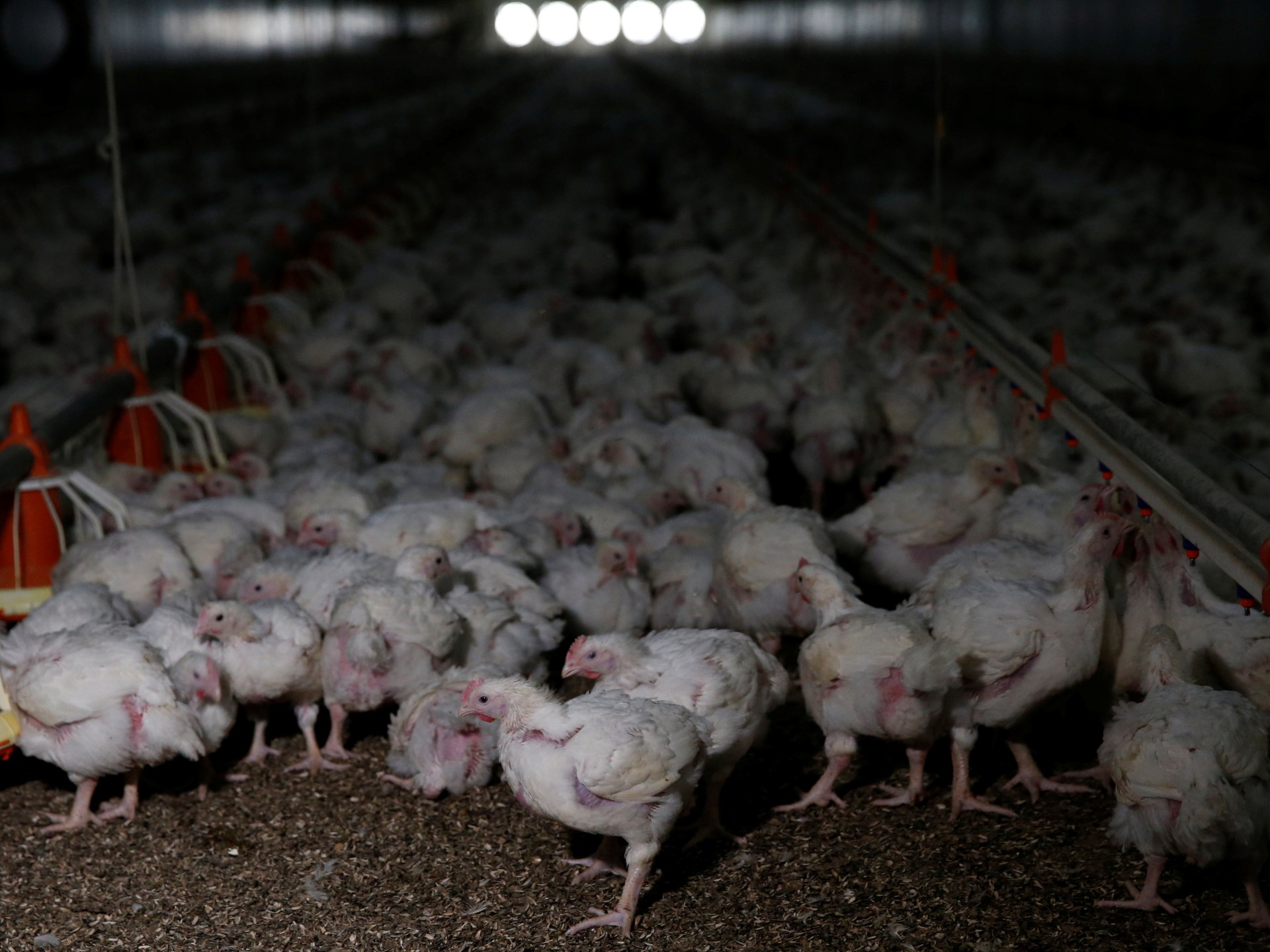Africa’s most advanced economy is enduring frequent electricity cuts that have ramped up the cost of business, including in the poultry industry.
South Africa faces chicken shortages in the coming months as a bird flu outbreak and persistent electricity cuts ravage the poultry industry, the country’s largest producer Astral Foods says.
In a trading update, Astral said on Thursday that it expected to report a headline loss of 18.02 rand to 18.08 rand ($0.9564-$0.9596) per share in the year to September 30, compared with a profit of 27.62 rand ($1.46) last year. The projected loss is due mainly to persistent power cuts.
Astral said the electricity crisis had disrupted the poultry industry and raised operating costs, which had now been compounded by additional expenses related to “the worst” bird flu outbreak, which has spread across South Africa’s Gauteng and Mpumalanga provinces “at an alarming rate”.
“The bird flu has already caused short supplies of table eggs into the market, and it is expected that the supply of poultry meat into the value chain could be affected negatively in the coming months,” Astral said.
Africa’s most advanced economy is enduring frequent electricity cuts blamed on its ageing coal-fired fleet of power plants. State-owned utility Eskom is routinely reducing power supply to businesses and households for several hours daily, a process locally called load shedding.
In February, analysts told Al Jazeera that years of underinvestment in maintenance of ageing coal plants has affected Eskom’s capacity to deliver consistent power supplies. Some of the newer power plants have also broken down due to overburdening.
“The total costs of load shedding, including capital costs of 200 million rand [$10.6m], for the group for the financial year will amount to approximately 1.9 billion rand [$100.8m]. This has been the main reason for the severe decline of Astral’s results for the year ending 30 September 2023,” the company said.
Businesses have had to spend millions on alternative sources of power, such as diesel generators and solar plants. Small businesses, often seen as the lifeblood of the economy, account for a third of the country’s gross domestic product (GDP).
For the poultry sector, erratic electricity supplies affect ventilation systems, slaughter schedules and chicken processing. Astral said it was spending 45 million rand [$2.4m] every month to run diesel generators.
